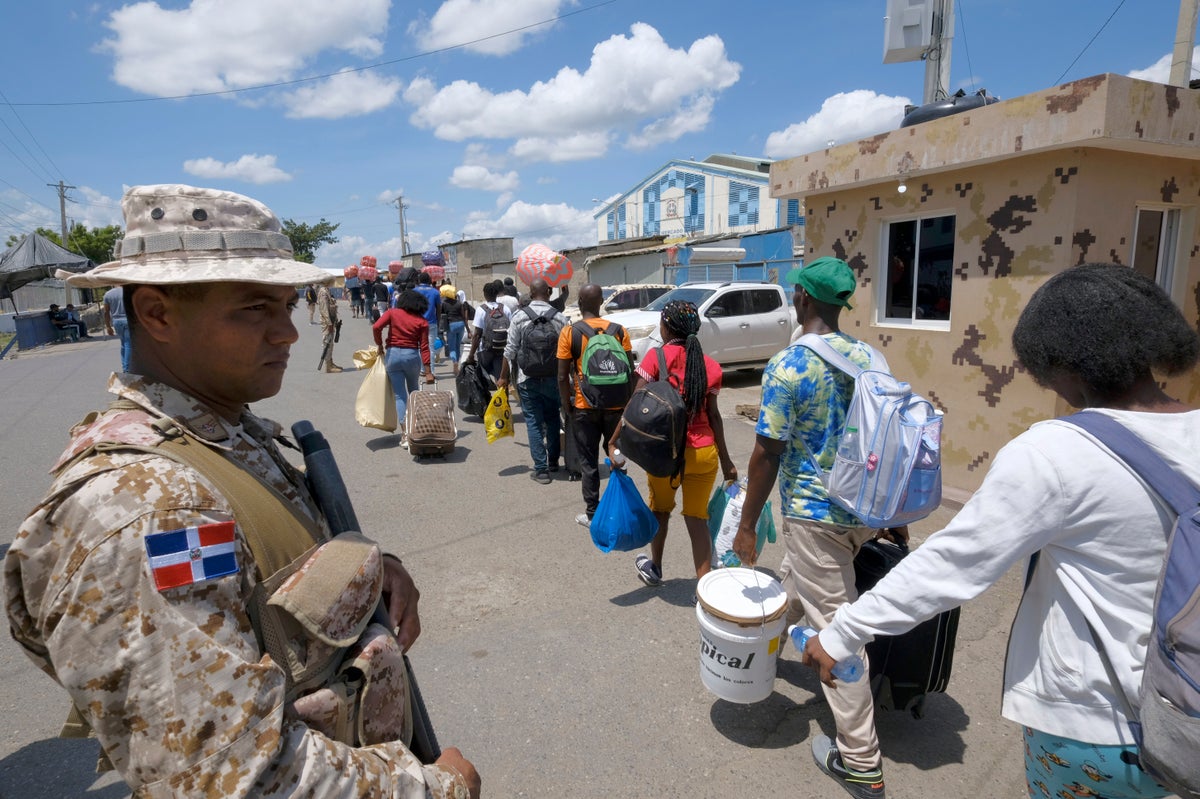
Haiti’s government on Thursday doubled down on the construction of a canal on Haitian soil that would divert water from a river it shares with the Dominican Republic, which in response last week shuttered land, air and sea borders that both countries share.
The Haitian government said on social media that the agriculture ministry is working with a group of Haitians building the canal so that it meets technical standards and ensure it would not negatively affect crops and people living in the nearby Maribaroux plain, which is under a drought.
The canal "MUST BE BUILT," the government said in a series of posts on X, the social platform formerly known as Twitter.
It added that “the ministry always remains available to sit with all sectors concerned in the construction of the canal for a better planning of the construction sites. Without forgetting that mobilization is the expression of solidarity and patriotism of a population that shows the world that Haiti is an adult nation.”
The statement is expected to further deepen long-simmering tensions between the two countries, which share the island of Hispaniola.
The Haitian government also said
Dominican President Luis Abinader has said the construction violates a treaty and that the canal would divert water from the Massacre River that runs along the border and affect Dominican farmers and the environment. The river is named after a bloody battle between Spanish and French colonizers, and it was the site of a mass killing of Haitians by the Dominican army in 1937.
Abinader closed all borders on Friday after insisting that Haiti stop the canal construction that began several years ago but was temporarily halted following the July 2021 assassination of President Jovenel Moïse.
The Dominican government also is reactivating an old canal on the Massacre River near Dajabon before it crosses into Haiti to ensure water for local farmers and residents. The project is expected to take a couple of months.
Abinader spoke Wednesday at the United Nations’ General Assembly and said his administration has since April 2021 told Haitian authorities to halt work on the canal, which at the time was not considered a government project.
“The idea of this project was never officially communicated to the Dominican government, nor was documentation provided regarding its size, its environmental impact and the identity of its final beneficiaries,” Abinader said.
He also urged the immediate deployment of a foreign armed force to Haiti to help quell a surge in gang violence amid a rise in killings, rapes and kidnappings.
“Now! Because time has run out,” Abinader said.
Haitian Prime Minister Ariel Henry first requested such a force in October, but the U.N. Security Council has yet to act. Kenya has said it would lead a multinational force as it established diplomatic ties with Haiti on Wednesday.
The U.S. has said it would submit a U.N. resolution authorizing such a force. No timetable has been established.
Canadian Prime Minister Justin Trudeau said Thursday that he had called on Henry to do more to engage and rally Haitians themselves around the prospect of international intervention, however it takes shape.
“We need to make sure that the Haitian people themselves are at the center of the path forward, regardless of how we define that path to be, and how we work to establish the right plan," he said.







